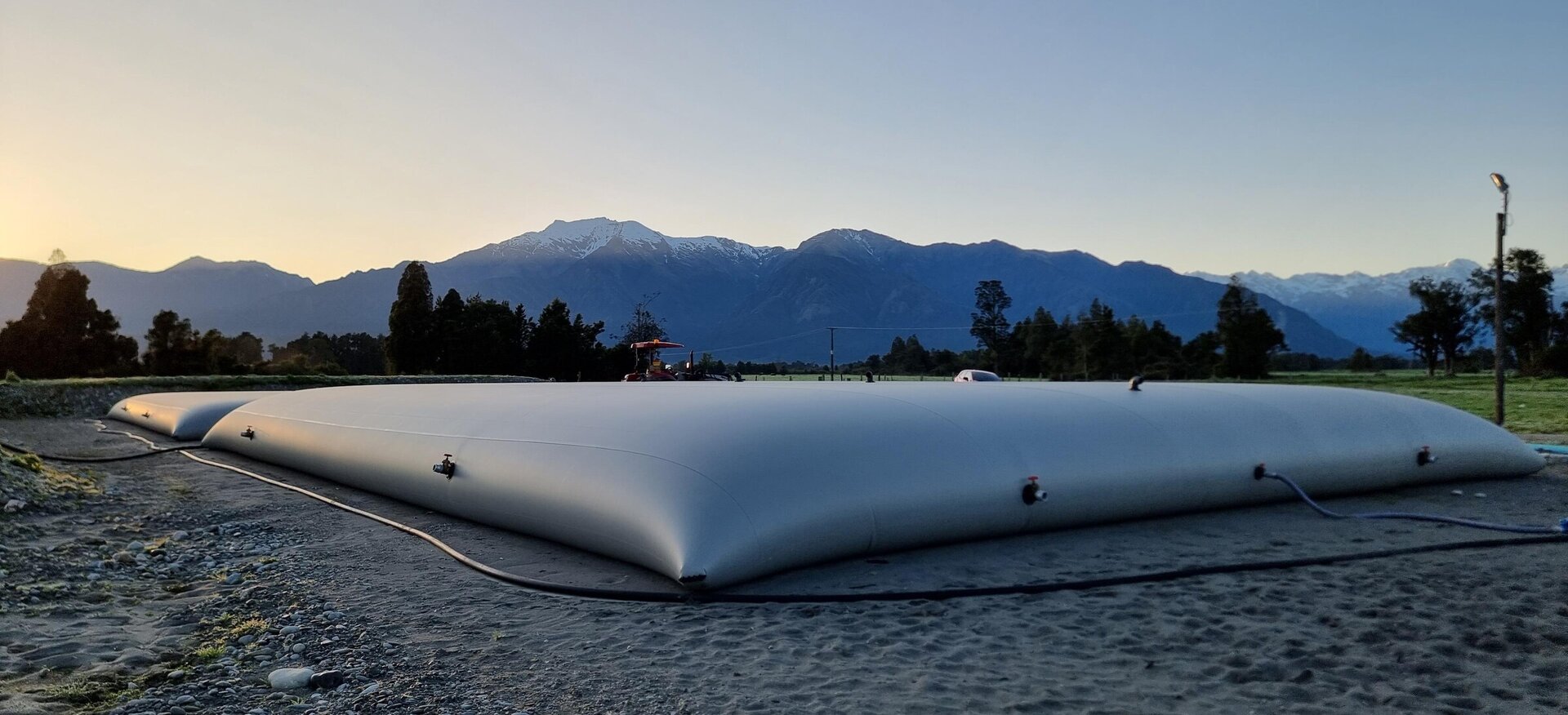DAIRY EFFLUENT STORAGE
Flexi Tanks are commonly used for dairy effluent storage, providing a flexible and efficient solution for containing and managing effluent. Here's how Flexi Tanks are utilised in the dairy industry:
Effluent Collection and Transfer: Dairy farms generate significant volumes of effluent, which consists of animal waste, wash water, and other byproducts. Flexi Tanks can be easily set up and connected to effluent collection points (e.g. sumps, ponds and sand traps) when irrigating is not feasible, such as during wet weather or restricted spreading periods. The tanks provide a reliable and cost-effective solution for storing effluent until it can be appropriately managed, treated, or disposed of in compliance with environmental regulations.
Nutrient Management and Irrigation: Dairy effluent is a valuable source of nutrients for agricultural purposes. Flexi Tanks are used to store nutrient rich effluent and allow for proper mixing and agitation to ensure an even application of nutrients on your pasture when irrigated.
Flexi Tanks used for dairy effluent storage offer several benefits. They are UV stabilised, resistant to corrosion, and handle a range of PH levels typically found in effluent, ensuring long-term durability. The tanks are available in various sizes to accommodate different effluent volumes and storage requirements. Flexi Tanks are a complete connect-and-fill package, equipped with inlet and outlet fittings, mixing valves, overflows and vents.
The only flexible storage you need!
"With our annual rainfall of 1.2 m falling on the roof area, of 6,300 sq meters, we can catch 7,500,000 litres of rain water. If we had the money I would have two bladders to capture more and offer fresh water every day to the cows."
Bryan Beerston
